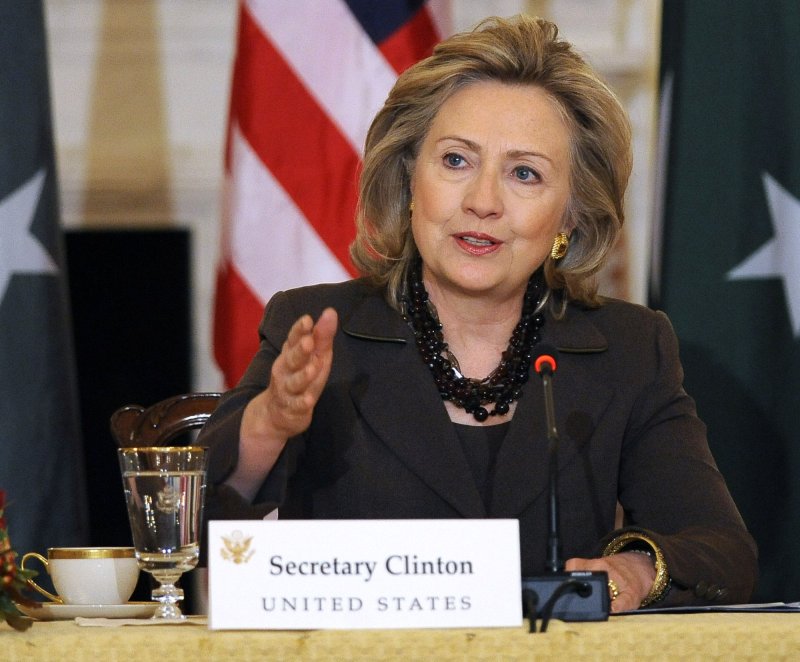Secretary of State Hillary Rodham Clinton and Pakistan's Foreign Minister Shah Mahmood Qureshi (not seen) make opening statements during a plenary session of the U.S.-Pakistan Strategic Dialogue Meeting at the State Department in Washington on October 22, 2010. UPI/Roger L. Wollenberg |
License Photo
MELBOURNE, Nov. 8 (UPI) -- U.S. Secretary of State Hillary Clinton and Australian Prime Minister Julia Gillard announced a $50 million joint solar research program aimed at developing cheaper solar power solutions.
"The price of solar technology has come down in recent years but we need to accelerate that trend," Gillard said Sunday. The project aims to bring down the sales price of solar technology by two to four times.
Gillard said the research would focus on advance solar technologies, such as dual junction, photovoltaic devices, hot carrier solar cells and high-temperature receivers.
"We have a common goal of making solar energy competitive with conventional sources by the middle of this decade, 2015," said Clinton.
Clinton also announced a $500,000 grant from the U.S. State Department to Australia's state-backed Global Carbon Capture and Storage Institute to fund a global survey to identify promising technologies for reusing carbon dioxide.
Australia has set a renewable energy target of at least 20 percent of the nation's electricity to be generated from renewable energy sources by 2020, which Gillard said is expected to generate $19 billion in related investment. Australia has allocated $5.1 billion for the country's clean energy initiative, she said.
Coal-fired power stations, known for high carbon dioxide emissions, generate about 80 percent of Australia's electricity. Wind and solar power account for less than 1 percent.
Clinton said the United States and Australia could be "pioneers" in sparking a global clean tech industry.
"And that will help our economies grow by creating tens of thousands of new jobs and give us viable alternatives to fossil fuels and reduce our dependence on foreign sources of energy," she said.
Australia, the world's largest exporter of coal, has the highest per capita of carbon emissions among developed nations.
Clinton said the United States was committed to ensuring progress at the U.N. climate talks in Cancun, Mexico, later this month. She said the failure of the world to strike a deal to fight climate change at the Copenhagen summit last year wasn't an excuse for doing nothing.
"I think both the people of Australia and America don't want to see more bickering about what should be done to reduce carbon emissions. They want to see action," she said.
"Rather than just waiting for global agreements, we have decided, between our two governments, to take steps on our own."
Australia was the final stop on Clinton's Asia-Pacific tour, which included Vietnam, Cambodia, Malaysia, Papua New Guinea and New Zealand.















